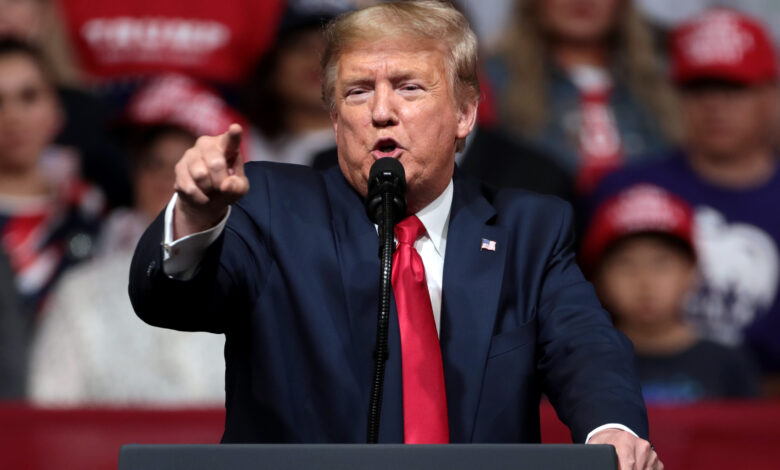Trump Media Advocates Against Short Selling Amid Stock Decline

Amid a tumultuous period for its stock, Trump Media has issued guidance to its shareholders on how to protect their shares from being used in short-selling transactions. This move comes as the DJT stock, which commenced trading on March 26, has experienced a precipitous decline in value, attracting the attention of short sellers and causing concern among stakeholders.
Former President Donald Trump, who owns nearly 60% of Trump Media’s shares, is the company’s largest shareholder. His significant stake and the performance of the stock are critical amidst his role as the presumptive Republican presidential nominee. Since the public trading of DJT began, the stock has faced volatility, highlighted by a sharp 15% increase on a recent Wednesday, though it still closed at $26.40, down 63% from its opening price.
The context of this dramatic decrease in stock value is framed by a broader narrative. On the first of April, Trump Media disclosed a significant loss of $58 million for 2023, with minimal revenue of just $4.1 million for that year, a revelation that has intensified scrutiny on the company’s financial health and strategic direction.
In response to these challenges, Trump Media updated its Frequently Asked Questions section on its website on Wednesday, adding a new supplement that provides detailed instructions to shareholders on preventing their shares from being loaned out for short selling. This practice involves borrowing shares to sell them at current prices before buying them back at lower prices, aiming to profit from the decline.
“For long-term shareholders who believe in the Company’s future, the Company is highlighting the following actions you can take with your brokerage firm to prevent the lending of your shares for short selling,” stated Trump Media. The tips provided include holding DJT shares in a cash account rather than a margin account, opting out of securities lending programs, and transferring shares to the company’s designated transfer agent or to a bank for holding in a retirement account.
These protective strategies are underscored by a sample letter included in the supplement, which shareholders can use to instruct their brokers not to loan out their shares. This proactive approach by Trump Media is designed to fortify its stock against further short selling pressures, which the company views as exacerbating its market challenges.
The spotlight on short selling within Trump Media’s stock management strategy highlights the broader market dynamics where sophisticated and institutional investors often engage in short sales facilitated by brokerage firms. These firms can generate revenue from lending out shares for short sales, creating a potential conflict of interest if the stock’s price decreases, thereby benefiting the brokers and institutional short sellers at the expense of retail investors.
This situation is further complicated by the inherent risks of short selling, where losses can theoretically be unlimited if the stock price increases instead of falling as anticipated. This risk is a crucial consideration for Trump Media as it seeks to stabilize its stock price and reinforce shareholder confidence.
Trump Media’s focus on preventing short selling of its shares comes at a critical juncture, with the potential for significant shifts in the company’s share value directly impacting its broader financial and strategic initiatives. As Trump Media navigates these challenges, the market and its stakeholders are closely watching to see how these strategies will affect the company’s future performance and stability.
With only about 5 million of DJT’s more than 136 million shares available for shorting, and many of these shares already tied up in short positions, the scarcity of shares available for shorting has made the stock a focal point among investors watching the unfolding financial drama at Trump Media.
Keywords:
Trump Media, DJT stock, short selling, stock market, shareholder guidance, Trump Media stock decline, financial strategies, market volatility, protective stock measures, shareholder tips.




